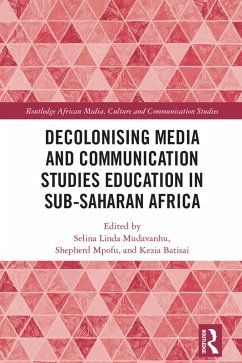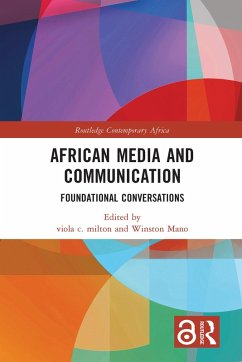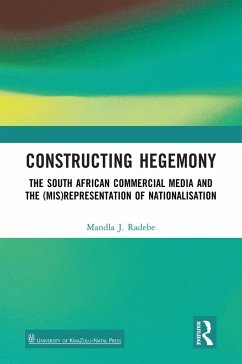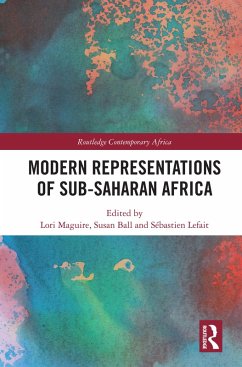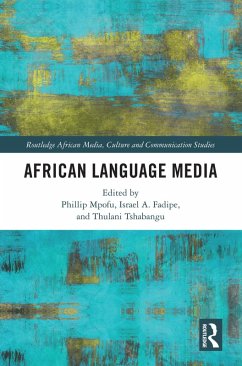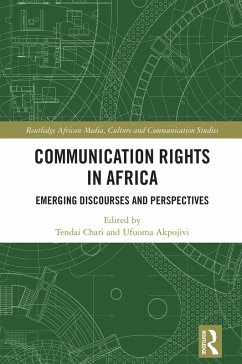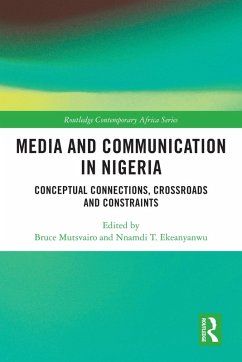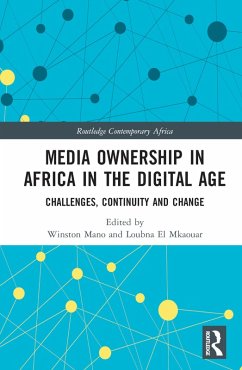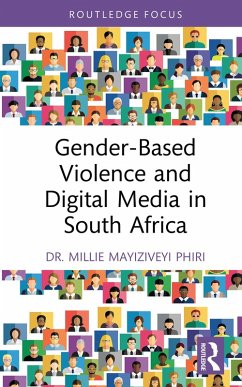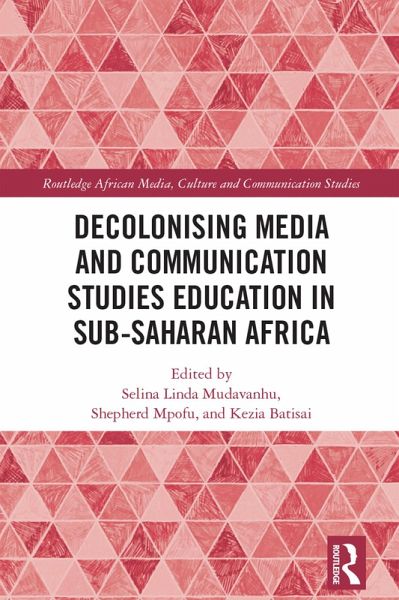
Decolonising Media and Communication Studies Education in Sub-Saharan Africa (eBook, ePUB)
Versandkostenfrei!
Sofort per Download lieferbar
39,95 €
inkl. MwSt.
Weitere Ausgaben:

PAYBACK Punkte
20 °P sammeln!
The book provides insights on decolonising media and communication studies education from diverse African scholars at different stages of their careers. These academics, located on the continent and in the diaspora, share an interest in decolonising higher education broadly and media and communication studies teaching and learning in particular.Although many African countries gained flag independence from different European colonial powers between the 1950s and the 1970s, this book argues that former colonies remain ensnared in a colonial power matrix. Many African universities did not jettiso...
The book provides insights on decolonising media and communication studies education from diverse African scholars at different stages of their careers. These academics, located on the continent and in the diaspora, share an interest in decolonising higher education broadly and media and communication studies teaching and learning in particular.
Although many African countries gained flag independence from different European colonial powers between the 1950s and the 1970s, this book argues that former colonies remain ensnared in a colonial power matrix. Many African universities did not jettison ways of teaching and learning established during colonialism, and even those journalism, communication, and media studies training programmes which were established after the attainment of flag independence did not place decolonial agendas at the front and centre when setting them up. Starting with big picture thematic questions around decolonisation, the book goes on to consider what the implications of change would be for students and instructors, before reflecting on how far it is possible to decolonise curricula and syllabi and what this might look like in practice across a range of subject areas and country contexts. Overall, this book presents a nuanced picture of what a decolonised media and communication studies education could look like in sub-Saharan Africa.
This book is essential for researchers in Africa in disciplines such as media and communication studies, journalism, film studies, cultural studies, and higher education studies. More broadly, the concepts and ideas on decolonising teaching and learning discussed in the book are relevant to instructors in any discipline who are interested in doing the decolonial work of contesting coloniality.
Although many African countries gained flag independence from different European colonial powers between the 1950s and the 1970s, this book argues that former colonies remain ensnared in a colonial power matrix. Many African universities did not jettison ways of teaching and learning established during colonialism, and even those journalism, communication, and media studies training programmes which were established after the attainment of flag independence did not place decolonial agendas at the front and centre when setting them up. Starting with big picture thematic questions around decolonisation, the book goes on to consider what the implications of change would be for students and instructors, before reflecting on how far it is possible to decolonise curricula and syllabi and what this might look like in practice across a range of subject areas and country contexts. Overall, this book presents a nuanced picture of what a decolonised media and communication studies education could look like in sub-Saharan Africa.
This book is essential for researchers in Africa in disciplines such as media and communication studies, journalism, film studies, cultural studies, and higher education studies. More broadly, the concepts and ideas on decolonising teaching and learning discussed in the book are relevant to instructors in any discipline who are interested in doing the decolonial work of contesting coloniality.
Dieser Download kann aus rechtlichen Gründen nur mit Rechnungsadresse in A, B, BG, CY, CZ, D, DK, EW, E, FIN, F, GR, HR, H, IRL, I, LT, L, LR, M, NL, PL, P, R, S, SLO, SK ausgeliefert werden.




